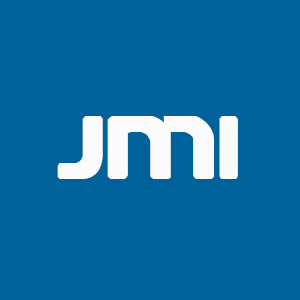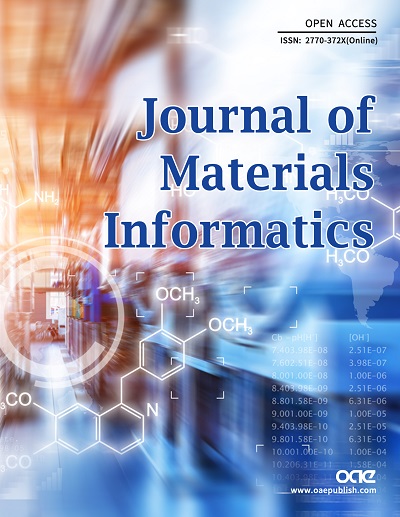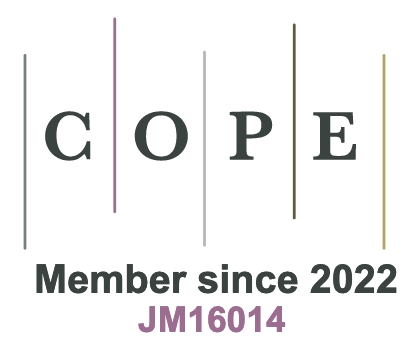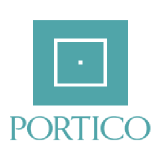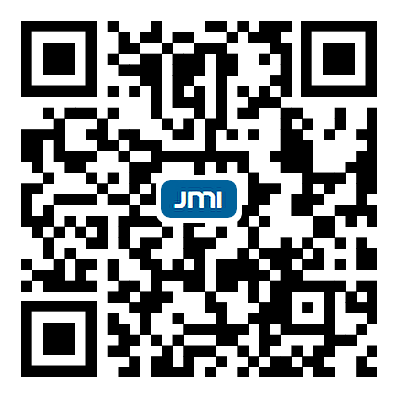Partner's Meeting
Journal of Materials Informatics (JMI) is an international peer-reviewed, open access, online journal.
Aims and Scope
JMI aims to advance and accelerate the pace of materials discovery, design, and deployment by synergistically combining theory, experiment, computation, and artificial intelligence in a tightly integrated and smart manner. The journal synthesizes foundational physics, chemistry, mathematics, mechanics, computer science and engineering, and materials science and engineering with emerging experiments, computations, and real-world applications, for interdisciplinary researchers and those who are new to the field. Although materials informaticsis currently in the nascent stage, it is reshaping materials science and engineering in many ways at an exponential speed and its full power of synergy is still far from being realized.
The discovery and maturation of advanced materials are greatly fostered by data science, Internet, computer science and engineering, and digital technologies with huge data generated from high-throughput computations and combinatorial and high-throughput experiments. Materials informatics provides the foundations of a new paradigm of materials discovery and optimization by adding the novel tool of artificial intelligence and machine learning to the tool box of materials science and engineering, which will definitely strengthen and enhance the power of methodologies in materials research and development. Materials informatics utilizes artificial intelligence and machine learning to analyze large ensembles of materials data from experiments, computations, manufactures, industries, daily life, etc., efficiently and cost-effectively and to deliver materials knowledge and technology in user-friendly ways to the designers of materials and products, and manufacturers. The great impact of JMI is expected to quickly build up the broader materials informatics ecosystem, provide opportunities and challenges for the design and discovery of new materials, span an array of applications of materials with targeted properties and performance.
The journal provides a platform for presentation, publication, and exchange of researches related to materials informatics, seeking to break down barriers among materials science and engineering, data science and engineering, and artificial intelligence. The journal also provides a venue for presenting innovative approaches to overcome the difficulties in unraveling the complexity of data associated with numerous factors including noise, uncertainty, and small amount, to achieve the quantum jump from data to knowledge.
A representative journal scope includes:
- Materials data acquisition, standardization, database construction, information fusion for multi-source materials data;
- Machine learning and statistical learning of materials data;
- Data-driven discovery, design, and development of materials with enhanced properties, lowed cost and more environment friendliness;
- Data-driven development of materials science;
- Theoretical modeling, analytic and numerical modeling of materials processing-microstructure-property relationship;
- Integrated materials computation, multiscale and cross-scale computation, and high-throughput computation;
- Development of softwares, codes, and algorithms for materials computation and simulation, and for machine learning and statistical learning;
- New techniques for materials fabrication, characterization, and manufacture;
- High-throughput experimental technologies;
- High information gained experimental technologies to characterize multiple properties in an integrated device or/and system;
- Interdisciplinary materials research across physics, chemistry, mathematics, mechanics, computer science and engineering, and materials science and engineering;
- Synergistic materials research combining theory, experiment, computation, and artificial intelligence;
- Development in materials science and engineering to predict structure-property-performance relationships of materials with machine learning or/and domain knowledge approaches;
JMI strongly encourages submission of the essential digital data and home-made software package that support published articles.
Ownership
The journal is owned by OAE Publishing Inc.
Publishing Model
Gold open access. All articles published by JMI are made freely and permanently accessible online immediately from the date of publication. For further information, please refer to Open Access.
Copyright and License to Publish
Articles in JMI are published under a Creative Commons Attribution 4.0 International (CC BY 4.0). The CC BY 4.0 allows for maximum dissemination and re-use of open access materials and is preferred by many research funding bodies. Under this license users are free to share (copy, distribute and transmit) and remix (adapt) the contribution for any purposes, even commercially, provided that the users appropriately acknowledge the original authors and the source.
Copyright is retained by authors. Authors are required to sign a License to Publish (which can be downloaded from the journal's Author Instructions), granting JMI, which identifies itself as the original publisher, exclusive rights to publish their articles, and granting any third party the right to use the articles freely as long as the integrity is maintained and the original authors, citation details and publisher are identified.
Editorial Board
For more information about the editorial team, please refer to Editorial Board.
Editorial Policies
All manuscripts submitted to JMI should adhere to JMI's Editorial Policies.
Peer Review
The journal adheres to rigorous peer review and undergoes single-blind peer review. For more details, please refer to Editorial Process and Peer Review Guidelines.
Publication Ethics Statement
JMI fully adheres to the Code of Conduct and the Best Practice Guidelines of Committee on Publication Ethics (COPE).
The Editors of this journal enforce a rigorous peer-review process together with strict ethical policies and standards to guarantee to add high quality scientific works to the field of scholarly publication. Unfortunately, cases of plagiarism, data falsification, image manipulation, inappropriate authorship credit, and the like, do arise. The Editors of JMI take such publishing ethics issues very seriously and are trained to proceed in such cases with a zero tolerance policy. To verify the originality of content submitted to our journals, we use CrossCheck (powered by iThenticate) to check submissions against previous publications.
Journal Information and Statistics
- Frequency: Quarterly published
- DOI: 10.20517/jmi
- ISSN 2770-372X(Online)
- Digital archive: Portico
Indexing & Archiving
All articles published in JMI are included in:Contact
Please visit Contact Us for details about different queries.
